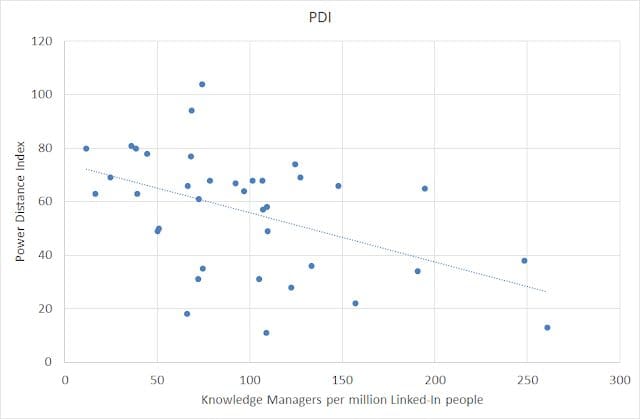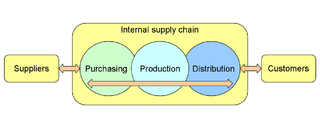Nick Milton
-
Nick Milton wrote a new post on the site CYBERCASEMANAGER ENTERPRISES 5 years, 5 months ago
What rights do your workers have in terms of access to knowledge? What are their corresponding responsibilities? Intermon Oxfam by on Mover el Bigote on FlickrKnowledge management is well developed in the aid and […]
-
Nick Milton wrote a new post on the site CYBERCASEMANAGER ENTERPRISES 5 years, 5 months ago
How do Japanese organisations approach best pratice sharing? Let’s look at YokotenWorkers exchanging knowledge (genchi gembutsu) Japan, exemplified by Toyota, has developed its own flavour of Knowledge […]

-
Nick Milton wrote a new post on the site CYBERCASEMANAGER ENTERPRISES 5 years, 5 months ago
How do Japanese organisations approach best pratice sharing? Let’s look at YokotenWorkers exchanging knowledge (genchi gembutsu) Japan, exemplified by Toyota, has developed its own flavour of Knowledge […]

-
Nick Milton wrote a new post on the site CYBERCASEMANAGER ENTERPRISES 5 years, 5 months ago
Very often the Knowledge Management professional (especially the Knowledge Engineer) will get involved in the mechanics of Knowledge Capture. This is where they need to be fully objective, and avoid “leading the […]

-
Nick Milton wrote a new post on the site CYBERCASEMANAGER ENTERPRISES 5 years, 5 months ago
A few years ago I compared published cultural dimensions for various countries against a proxy measure of KM maturity. This blog post repeats that analysis with more recent, and more complete, data. One of the […]

-
Nick Milton wrote a new post on the site CYBERCASEMANAGER ENTERPRISES 5 years, 5 months ago
The link between Data, Information and Knowledge is not as simple as the three being a linear progression. Knowledge is something you ADD to Data and Information, rather than something that arises FROM […]

-
Nick Milton wrote a new post on the site CYBERCASEMANAGER ENTERPRISES 5 years, 5 months ago
We currently know very well the power of a virus, and the way that it infects and spreads. But is this “viral introduction” a good model for introducing KM?Image by Kat Masback on FlickrThe world is in thrall to a […]

-
Nick Milton wrote a new post on the site CYBERCASEMANAGER ENTERPRISES 5 years, 5 months ago
A knowledge management strategy is not set in stone. It is not a fixed, immutable 5-year roadmap – it needs to change as the business landscape change. But who should steer these changes? Who is in the driving […]

-
Nick Milton wrote a new post on the site CYBERCASEMANAGER ENTERPRISES 5 years, 5 months ago
“Knowledge Management” is not an oxymoron, the term is merely being read the wrong way round.One primary argument against the term “Knowledge Management” is that knowledge cannot be managed. Knowledge is an […]

-
Nick Milton wrote a new post on the site CYBERCASEMANAGER ENTERPRISES 5 years, 5 months ago
In an interesting New Scientist article, Harry Collins (author of “Tacit and Explicit knowledge”) describes three types of Tacit Knowledge. Image from wikimedia commonsWe know about the concept of tacit kn […]

-
Nick Milton wrote a new post on the site CYBERCASEMANAGER ENTERPRISES 5 years, 5 months ago
A blog post appeared in the Huffington Post a few years ago entitled “you are more than a knowledge worker”, which, in my view, completely missed the essential point of knowledge work. Carmen Iannacone: Hello I’m […]

-
Nick Milton wrote a new post on the site CYBERCASEMANAGER ENTERPRISES 5 years, 6 months ago
If Knowledge Management is like gardening and the knowledge manager is like a gardener (see here to understand the metaphor), then Internal competition is like a late frost that kills all your green […]
-
Nick Milton wrote a new post on the site CYBERCASEMANAGER ENTERPRISES 5 years, 6 months ago
If you are a new Knowledge Manager, implementing KM for the first time in an organisation, there are 4 things to learn about before you start, and some of that learning may be closer to home than you realise.One […]
-
Nick Milton wrote a new post on the site CYBERCASEMANAGER ENTERPRISES 5 years, 6 months ago
Here is another excellent article from Tom Davenport, one of the clearest writers on the topic of Knowledge Management, making the case for a structured “just-in-time” approach to the supply of knowledge. Tom […]

-
Nick Milton wrote a new post on the site CYBERCASEMANAGER ENTERPRISES 5 years, 6 months ago
In the UK we call them “the boffins” – the deepest subject matter experts. However there are 4 reasons not to ask the boffins to write the knowledge base content.Image from wikipediaWe can view Knowledge […]

-
Nick Milton wrote a new post on the site CYBERCASEMANAGER ENTERPRISES 5 years, 6 months ago
If we see KM as a supply chain, supplying knowledge to the knowledge worker in order that they can make the right business decision, then we can apply concepts such as lean to optimise that supply chain.There are […]

-
Nick Milton wrote a new post on the site CYBERCASEMANAGER ENTERPRISES 5 years, 6 months ago
In a market where supply grossly exceeds demand, prices fall, and value is destroyed. This is an unhealthy market, and these conditions can apply to knowledge as well as to commodities.A commodity where supply far […]

-
Nick Milton wrote a new post on the site CYBERCASEMANAGER ENTERPRISES 5 years, 6 months ago
I was asked last week whether Covid-induced remote working promotes KM. I don’t think it does yet; but the opportunity exists to make KM part of the New Normal.Image from tradoc.army.milFirstly let’s recognise […]
-
Nick Milton wrote a new post on the site CYBERCASEMANAGER ENTERPRISES 5 years, 6 months ago
In this article from Forbes Magazine in 2012, Steven Denning, once head of KM at the World Bank and a wise commentator on Knowledge Management topics, describes his ten principles for managing knowledge.These ar […]

-
Nick Milton wrote a new post on the site CYBERCASEMANAGER ENTERPRISES 5 years, 6 months ago
There is often conflict between creating revenue and creating knowledge. Both of these require time, resources and incentives, and so are often in conflict. The problem is that knowledge is the source of future […]

- Load More

















